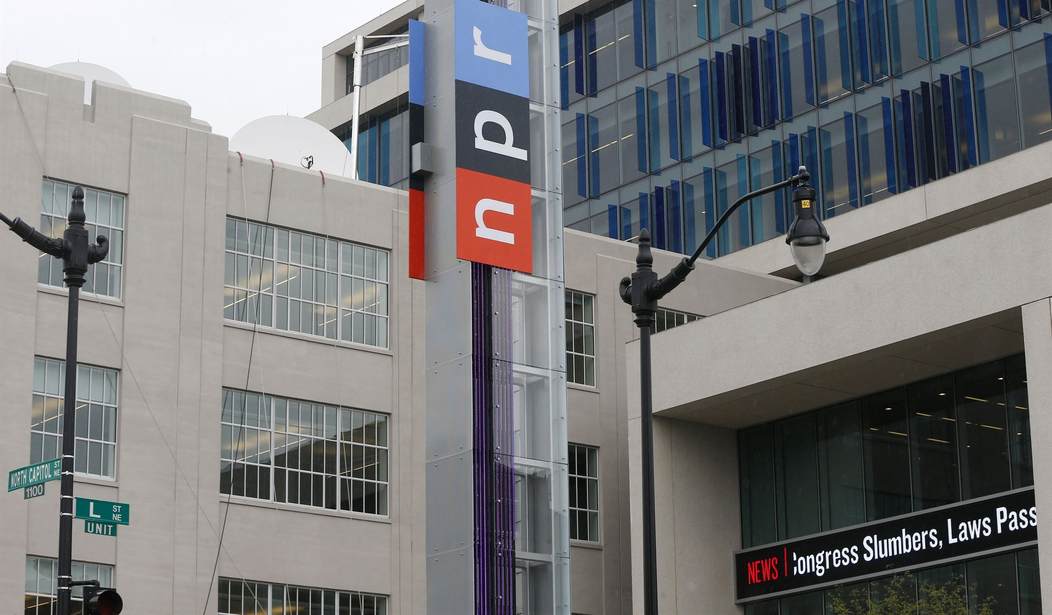Last week NPR produced a podcast on what it deemed “free speech absolutism” featuring a collection of guests who have all been critics of the current understanding of free speech. Matt Taibbi points out how the guest list for this show seems to have made the outcome of the discussion pretty pre-determined.
The guests for NPR’s just-released On The Media episode about the dangers of free speech included Andrew Marantz, author of an article called, “Free Speech is Killing Us”; P.E. Moskowitz, author of “The Case Against Free Speech”; Susan Benesch, director of the “Dangerous Speech Project”; and Berkeley professor John Powell, whose contribution was to rip John Stuart Mill’s defense of free speech in On Liberty as “wrong.”…
The essence of arguments made by all of NPR’s guests is that the modern conception of speech rights is based upon John Stuart Mill’s outdated conception of harm, which they summarized as saying, “My freedom to swing my fist ends at the tip of your nose.”
Because, they say, we now know that people can be harmed by something other than physical violence, Mill (whose thoughts NPR overlaid with harpsichord music, so we could be reminded how antiquated they are) was wrong, and we have to recalibrate our understanding of speech rights accordingly…
It was all a near-perfect distillation of the pretensions of NPR’s current target audience, which clearly feels we’ve reached the blue-state version of the End of History, where all important truths are agreed upon, and there’s no longer need to indulge empty gestures to pluralism like the “marketplace of ideas.”
As it happens, I’ve written about both Marantz and John Powell a couple of times before so I’m pretty familiar with their arguments about free speech. In 2018, Marantz wrote a piece for the New Yorker which quoted John Powell. And in 2019 he wrote a very similar piece for the NY Times, the aforementioned “Free Speech is Killing Us” which also quoted John Powell.
From what I can gather, none of the arguments have changed as this collaboration moves from venue to venue. Here’s what John Powell was saying back in 2018. (Powell’s name using lower case letters was in the original, don’t ask me why.)
“No one is disputing how the courts have ruled on this,” john a. powell, a Berkeley law professor with joint appointments in the departments of African-American Studies and Ethnic Studies, told me. “What I’m saying is that courts are often wrong.” Powell is tall, with a relaxed sartorial style, and his manner of speaking is soft and serenely confident. Before he became an academic, he was the national legal director of the A.C.L.U. “I represented the Ku Klux Klan when I was in that job,” he said. “My family was not pleased with me, but I said, ‘Look, they have First Amendment rights, too.’ So it’s not that I don’t understand or care deeply about free speech. But what would it look like if we cared just as deeply about equality? What if we weighed the two as conflicting values, instead of this false formalism where the right to speech is recognized but the harm caused by that speech is not?”…
I asked john powell what he thought about the rhetorical tactic of conflating speech with bodily harm. “Consider the classic liberal justification for free speech,” he said. “ ‘Your right to throw punches ends at the tip of my nose.’ This is taken to mean that speech can never cause any kind of injury. But we have learned a lot about the brain that John Stuart Mill didn’t know. So these students are asking, ‘Given what we now know about stereotype threat and trauma and P.T.S.D., where is the tip of our nose, exactly?’ ”
As I pointed out at the time, there’s nothing new about Powell’s formulation. Every left-wing college student demanding a safe space is effectively making the same argument, i.e. speech is violence and something that can cause harm.
The problem of course is that once you equate speech and violence, you hand a powerful heckler’s veto to anyone who disagrees with a given speaker’s content. Don’t like what someone is planning to say on campus? Shout that they are doing violence to x, y and z and demand they be deplatformed. Conveniently, this sort of claim that a speaker with a different opinion is causing harm cannot be argued or even discussed rationally. It is wholly dependent on one person’s emotional outburst to silence another person’s right to speak.
So on the one hand what Powell is recommending is begging students to become special snowflakes who can’t withstand any voice of opposition. On the other hand, there is another danger presented by equating speech with violence. There are some violent people on the left who will take that equivalence as an opportunity to dish out violence in response to speech. Yes, I’m talking about Antifa and their ilk. From their point of view, all one needs to do is determine someone is a fascist, i.e. anyone to the right of Mao, and you are justified in punching them to stop them from talking.
These aren’t just theoretical dangers. There are lots of examples of both kinds of behavior over the past few years. But of course NPR’s listeners won’t hear about any of them because they didn’t have a contradictory voice on the panel.








Join the conversation as a VIP Member